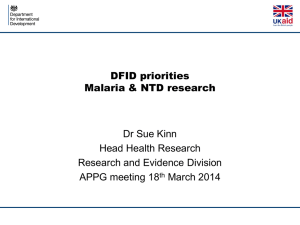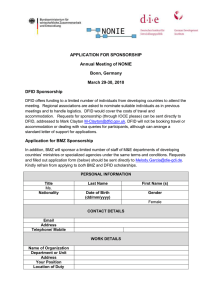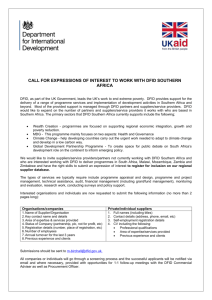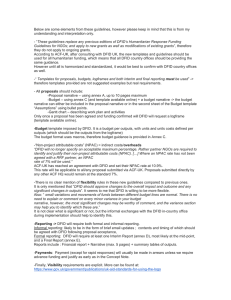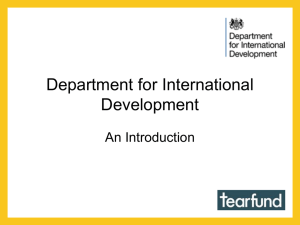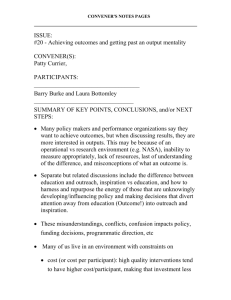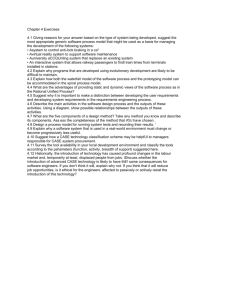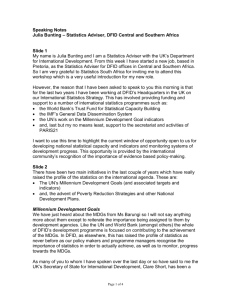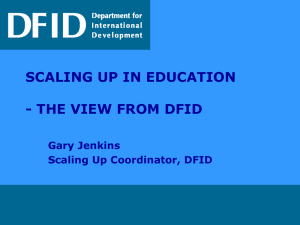Evaluation Study Terms of Reference Template
advertisement
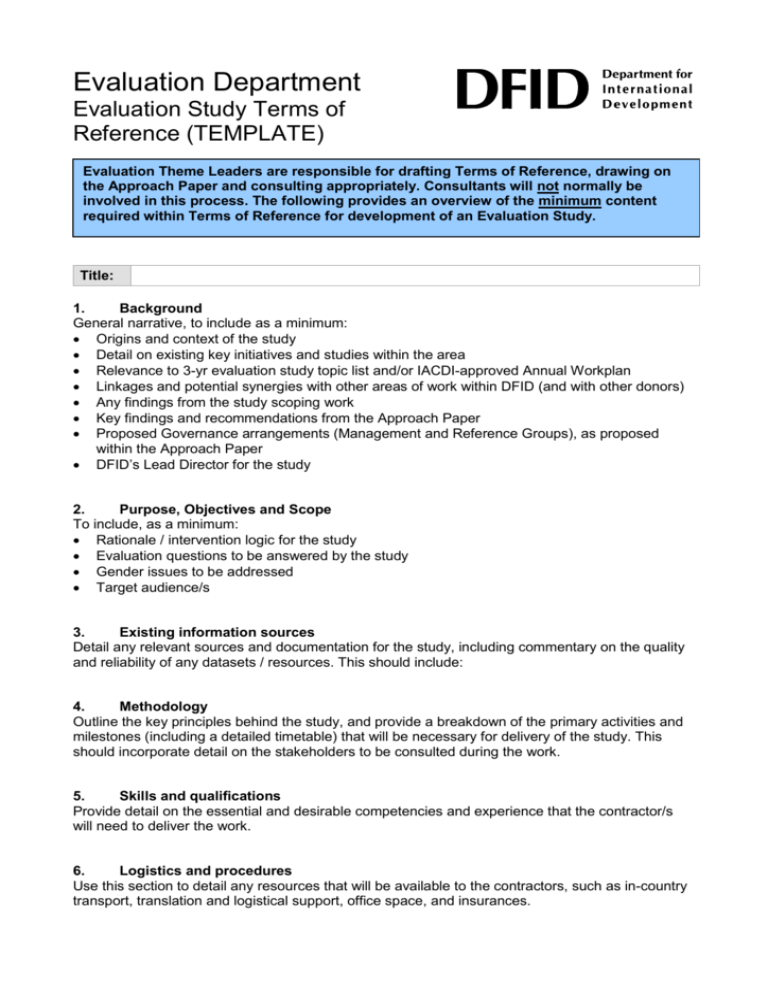
Evaluation Department Evaluation Study Terms of Reference (TEMPLATE) Evaluation Theme Leaders are responsible for drafting Terms of Reference, drawing on the Approach Paper and consulting appropriately. Consultants will not normally be involved in this process. The following provides an overview of the minimum content required within Terms of Reference for development of an Evaluation Study. Title: 1. Background General narrative, to include as a minimum: Origins and context of the study Detail on existing key initiatives and studies within the area Relevance to 3-yr evaluation study topic list and/or IACDI-approved Annual Workplan Linkages and potential synergies with other areas of work within DFID (and with other donors) Any findings from the study scoping work Key findings and recommendations from the Approach Paper Proposed Governance arrangements (Management and Reference Groups), as proposed within the Approach Paper DFID’s Lead Director for the study 2. Purpose, Objectives and Scope To include, as a minimum: Rationale / intervention logic for the study Evaluation questions to be answered by the study Gender issues to be addressed Target audience/s 3. Existing information sources Detail any relevant sources and documentation for the study, including commentary on the quality and reliability of any datasets / resources. This should include: 4. Methodology Outline the key principles behind the study, and provide a breakdown of the primary activities and milestones (including a detailed timetable) that will be necessary for delivery of the study. This should incorporate detail on the stakeholders to be consulted during the work. 5. Skills and qualifications Provide detail on the essential and desirable competencies and experience that the contractor/s will need to deliver the work. 6. Logistics and procedures Use this section to detail any resources that will be available to the contractors, such as in-country transport, translation and logistical support, office space, and insurances. In addition, this section should be used to detail, as a minimum, the procedures that DFID will apply with regards to: Who will be responsible for compiling initial documentation (EvD, Evaluator and/or Evaluee) An indication of the time that is likely to be required to collate, at least, internal DFID documentation Ethics Fieldwork Inception, workplanning and review meetings Commenting on study outputs (including timescales) Quality assurance of study outputs (including timescales) Post-study learning review 7. Outputs The Terms of Reference should require contractors to produce, as a minimum, the following outputs: Communications plan (to be developed and delivered during inception phase of study) Evaluation Study Report (to include a set of actionable recommendations) EvSum Delivery timescales should be clearly stated for these and any other outputs. Additionally, the Terms of Reference should indicate that all outputs must be in line with guidance as set out within “Editorial requirements for consultants preparing evaluation reports for DFID”. 8. Reporting and contracting arrangements Names, contact details and contractual responsibilities of the Evaluation Theme Leader and Evaluation Manager that will support the development and delivery of the study. This section should also include detail on the roles and responsibilities of any Steering Groups that will oversee the study. 9. Budget Include budget detail, or does this go against tendering guidance? If including budget, can / should this be broken down against activities and milestones from section 4 above? Annexes Attach any information that will closely inform proposals being developed in response to the TORs, such as: Approach Paper Details of any monitoring or results frameworks that have direct relevance to the study Terms of Reference for any Management or Reference Groups overseeing the study Editorial requirements for consultants preparing evaluation reports for DFID EvD Guidance Notes: o Ethics o Fieldwork Rights, Roles and Responsibilities
